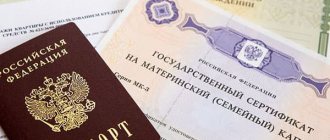What you need to know
Many citizens of our country are interested in the question of at what age a minor child can be held accountable for committing a crime.
So, according to the current Criminal Code, a small citizen will be responsible for his actions only if by the time the crime was committed he was already fourteen years old (when committing certain acts specified in Article 20 of the Criminal Code). As a general rule, minors who have reached the age of 16 are brought to criminal responsibility. But if the latter lag behind their peers in mental development and at the time of committing illegal acts could not fully realize the illegality of what they had done, according to the law they should not be punished.
Age of majority under 18 years of age
Coming of age is not always determined by years. There are 2 factors under which it occurs earlier:
- marriage;
- emancipation.
Although according to the Family Code the marriage period begins with the age of majority, there are still special cases when marriage can be allowed from the age of 16. Legal capacity comes with official employment or opening your own business.
Therefore, legal capacity is not necessarily established at the age of 18. When assigning this status, many life factors are taken into account. Depending on this, the citizen acquires rights and responsibilities.
Guardianship authorities monitor the observance of children's rights. If there are any violations on the part of parents or other persons, employees can appeal to the court or prosecutor's office. This is how the interests of the child are ensured.
Differences between legal capacity and majority
Persons who have not yet reached the specified age are called minors or minors.
The definition of minors includes citizens who have not yet reached the age of fourteen.
Parents or legal guardians are usually responsible for it.
Citizens at this age receive the right to get married independently, participate in elections, file an appeal to the court and bear full criminal liability.
For a long period of time, criminal liability in Russia began when minors reached the age of sixteen.
However, last year amendments to the law were adopted, subsequently, fourteen-year-old minors also began to bear criminal liability.
A minor child under the age of fourteen must live with his parents, guardians, adoptive parents, or, in the absence of legal representatives, in a special children's institution as directed by the guardianship authority.
When a child turns 14 years old, he can choose his place of residence himself, but only with the permission of his parents.
However, the Family Code does not provide for such a possibility, and the Civil Code allows for the separation of a child and parents only after the age of sixteen.
In case of divorce
In world practice, there are cases of joint custody of a minor, when he alternately lives with one or the other parent. However, in Russia this option practically does not occur.
If an agreement cannot be reached, then one of the parents must file a claim with the court. Having studied all the circumstances of the case, the court made an example decision regarding the place of residence of a minor during a divorce.
In doing so, the court takes into account the following circumstances:
- spiritual, moral, personal qualities of mother and father;
- parents' work schedule;
- level of wealth;
- Family status;
- relationship between parents and child, the degree of attachment of the child to mother or father;
- presence of brothers and sisters;
- health status of mother and father;
- remoteness of the place of residence from the educational institution;
- the opinion of the child himself, if he is ten years old.
The court will appoint to live together with the child the parent who, from the point of view of the law, can provide the minor with more favorable conditions for life, upbringing and development.
By agreement
In order for the document to receive official, legally recognized status, the agreement must be signed by both parents and notarized. Be sure to make three copies of the paper - one for each parent and for the archive.
A copy of the document is provided to the court; in the event of a divorce, the agreement on children becomes the basis for recognizing the full right of one or the other parent to live with the child.
If a minor finds himself in a situation where parents are absent, the state assumes responsibility for his upbringing, maintenance, development, and health.
The responsibility for identifying this category of children lies with state guardianship authorities. The reason for the parents' absence does not matter.
| Indicators | Description |
| Registration of guardianship | usually, although not necessarily a close relative |
| Adoption | or adoption |
| Placement with a foster family | — |
| Placement of a child for temporary residence in an institution | educational, medical, educational, social |
Is it possible to register real estate for a minor child? Find out in the article:
Is it possible to register an apartment for a minor child?
.
If you are interested in the question of how to draw up a deed of donation of a house to a minor child, read here.
In addition, the period of compulsory labor (from 40 to 160 hours) and correctional labor (from two months to a year) has been reduced. These are the advantages that minors have. A child under sixteen years of age cannot be assigned to serve a sentence in places of isolation from society for a period of more than six years. This is the law.
Until what age should a young child receive education? There is no specific time period, but the mandatory minimum is basic general education. The rest happens as desired. The legal status of children allows them to receive secondary education free of charge. There is a fee for education in a preschool institution. Secondary vocational and higher education can be paid or free.
Coming of age in Russia is the age at which a citizen is considered capable of fully exercising his rights, performing duties and bearing responsibility. As a general rule, this age is 18 years old, but the law gives other examples. Read all about coming of age, its consequences and ways to achieve it in this article.
The problem of determining the age of minor citizens is very relevant these days and often confronts its researchers with a choice between morality and law. How old is a child? This question is extremely important in many areas of human life.
Can a convicted minor be given a suspended sentence again? According to the law, this is possible, especially if the crime committed by the latter does not fall into the category of serious acts. When assigning a new suspended sentence, the court may apply other educational measures to the guilty teenager, control over the implementation of which is entrusted to the executive inspection body.
According to Art. 27 of the Civil Code of the Russian Federation, a teenager can be recognized as emancipated (fully capable) from the age of 16, provided that he works under an employment contract or is engaged in private entrepreneurial activity. At the same time, according to paragraph 2 of Art. 27 of the Civil Code of the Russian Federation, after a teenager is declared emancipated, his parents, adoptive parents or trustees are no longer responsible for any obligations of the minor.
- the right to study in accordance with federal state educational standards and according to individual curricula within the limits of federal state educational standards;
- right to an accelerated course of study;
- the right to free use of library and information resources of libraries;
- the right to receive additional educational services (including on a paid basis);
- the right to participate in the management of an educational institution;
- the right to receive basic general education in their native language, as well as to choose the language of instruction within the available opportunities provided by the education system;
- in case of termination of the activities of a general education institution, the right to transfer with the consent of parents to other educational institutions of the same type;
- the right to transfer to another educational institution implementing an educational program of the appropriate level, with the consent of this institution and the student successfully passing certification;
- the right to leave a general educational institution until receiving basic general education upon reaching the age of 15 years, with the consent of parents and the education management body;
- the right to continue education in an educational institution at any stage of education for persons receiving education in the family, with their positive certification and by the decision of parents or persons replacing them;
- the right to choose the form of education, which in this case means the right of parents or persons replacing them to choose a form of education for the child.
- a citizen who has reached the age of 16 sends a corresponding petition to the court (it will need to be accompanied by a package of documents confirming the existence of grounds for emancipation, as well as a receipt for payment of the state fee);
- the authorized body considers the application (the applicant, his legal representatives, a representative of the guardianship authorities, and a prosecutor take part in the consideration);
- The court makes a decision whether to satisfy or reject the applicant’s request.
- Drive a motor vehicle;
- Enter into and dissolve a marriage;
- Enter the service of the state;
- Send appeals to judicial authorities;
- Conduct transactions with real estate;
- Be a participant in civil law transactions;
- Take part in the election process as a voter, etc.
- The right to grow and develop in your family. Be a full member of it, communicate with all relatives and express your opinion on all family issues.
- The right to protect one’s interests in cases of infringement of one’s rights and the use of cruelty by parents.
- The right to receive financial support (receive benefits, alimony).
- The right to free education and medical care, which are provided in accordance with the articles of the Constitution of the Russian Federation.
- Children under 7 years of age are entitled to free travel on public transport.
- Upon reaching 10 years of age, the child’s opinion is taken into account at court hearings. For example, when determining his place of residence, in the event of parental divorce.
- Related Posts
- Children's ticket discount on swallow how much percent
- How is the pension of a working pensioner recalculated after a layoff?
- Rosstat how to find out the address of the statistics department for your LLC according to the tax identification number
- How to Get a Rent Subsidy in 2020
- from the age of 11, a minor can be placed in a special educational institution for children and adolescents (special school, special boarding school, etc.) in case of committing socially dangerous actions or malicious and systematic violation of the rules of public behavior.
- At the age of 14, children already receive passports and, with the permission of their trustees, can earn their first money by combining work and study.
- In addition, a minor can defend his rights in the courts and the prosecutor's office.
- From the age of 14 you can open a bank account, deposit money there and manage it. Also get the right of authorship for the work he made.
- If a child earns money on his own, then in case of violations or damage caused he bears financial responsibility.
- Also, a teenager can be prosecuted for theft, beatings, and other offenses.
- In addition to the above opportunities, sixteen-year-old children will already be able to ride a motorcycle and become a member of the cooperative. At this age, a child cannot be called fully capable, but if he gets married or becomes an entrepreneur, before reaching adulthood, he receives this right in full. In addition, such children can already be brought to the Criminal Code of the Russian Federation and administrative liability, on an equal basis with adults.
- At the age of 18, a child is fully capable, can bear responsibility on an equal basis with adults and work under the Labor Code of the Russian Federation on a general basis.
What does the term “young child” mean?
Rights of children before and after adulthood
The main role in protecting the rights of the child is given to legal representatives, that is, parents. At the same time, this responsibility also rests with government agencies, law enforcement agencies and municipal institutions.
From birth, a child has the fundamental right to life. Instead of him, no one has the right to make decisions and impose prohibitions. The government provides measures of influence by establishing responsibility for offenses committed.
Also, a minor has the right to freedom and personal integrity. The primary value of the state is the preservation of the personal space of the citizen. Legislation provides protection from physical and psychological impact on a person.
The child chooses a lifestyle at his own discretion, which does not involve causing harm to other people and represents freedom, which is opposed to slavery, life in captivity, violence and many other things. Child abduction and trafficking in children is strictly prohibited in the Russian Federation.
Also, before reaching adulthood, a child has the right to health care and medical care. Medical assistance is provided to children regardless of family welfare or status in social society.
Maintaining a child’s health and actions aimed at strengthening it have protection in the field of health care. The state is obliged to provide free assistance to children.
Children have the right to be raised in a family. This right is protected by the government and makes the family union of parents a value of society.
Moral guidelines in society represent the interests of childhood, motherhood and fatherhood.
The main goal of the state is the formation of strong ties for the well-being of the child. All babies from the moment of birth have the right to receive care from their parents.
Children also have the full right to receive an education. Legislation provides all minors with free education up to the secondary specialized level. The child also has the right to housing and the right to property and inheritance.
Consequently, once the age of majority has arrived, a citizen can enter into marriage, find employment under the Labor Code of the Russian Federation, be a member of a cooperative and have the right to paid leave once a year in the amount of 31 days.
Peculiarity
The law does not provide for special punishments for juvenile offenders that could not be applied to adult offenders. However, taking into account the mental development of young criminals, they cannot be sentenced to life imprisonment. In addition, such severe punishment as the death penalty is not applied to minors. Children, due to their age, cannot be deprived of special titles and awards. Also, minors are not subject to arrest.
A young offender can be held accountable for an offense if he is already fourteen years old at the time of its commission. At the same time, you need to know that a teenager will not be held accountable for his unlawful actions only if one day has not yet passed since he reached the legal age. A minor child who has committed a crime can count on a more lenient punishment.
Responsibilities of young children
Despite full or severely limited legal capacity, young children are not deprived of a number of responsibilities. They acquire most of them as they grow older. Until the age of 6, while the child is completely incapacitated, he has one duty - to obey his official representatives.
After reaching this age, young Russians develop:
- Required to attend school from the moment you enroll.
- Obligation to comply with its charter.
- Duty to study conscientiously.
- The obligation to take care of the property of the educational institution.
- Responsibility to comply with school rules.
- The duty to respect the honor, dignity and rights of all citizens.
Rights and responsibilities of young children
The list of responsibilities expands with the onset of “stronger” legal capacity of a citizen. Considering its complete or almost complete absence in a young child, one should not be surprised at the small list of responsibilities he has. This state of affairs is normal, because children are not fully capable of realizing the seriousness and importance of what is happening in their lives, so from birth it is simply unacceptable to treat them as adults.
Where are they serving?
It's no secret that juvenile offenders can be sent by the court to serve their sentence in a correctional colony. As a rule, such a harsh measure is applied only to those teenagers who commit a repeat crime. The latter are kept in the educational colony only until they reach the age of 18. A minor child serving a sentence in places of isolation has the right to visit relatives and receive parcels and parcels.
Basic principles for determining the place of residence of a child during divorce
From the above standards, certain conclusions can be drawn:
- the child cannot decide which parent to live with, his opinion is only taken into account;
- in the event of a divorce, parents have the right to enter into an agreement to determine the place of residence of their joint children in any form, but a written form, of course, is much more reliable;
- in the absence of an agreement, the issue is resolved in court;
- the court takes into account not only and not so much the child’s opinion, but his objective interests.
Maternity capital for 1 child in 2020 – what is important to know?
Main nuances
The question of the peculiarities of the legal status of minor children is most often associated with the emergence of property relations.
This is why the age of the child and the legally established status of legal capacity are so important.
After 14 years of age, the child’s legal capabilities expand, however, to perform banking transactions, participate in real estate transactions, find a job, etc. a child can do so only with written, not oral, parental permission.
In some cases, these actions must be monitored by guardianship authorities. This is done in order to reduce the risk of direct harm to the minor or worsening the material conditions of his life.
The age of a minor child is taken into account by the court as a mandatory mitigating circumstance when sentencing. This rule is enshrined in the Criminal Code. In this way, the state’s humanity and mercy towards juvenile offenders is demonstrated. After all, very often they commit their illegal acts thoughtlessly and spontaneously.
At what age does a child choose who to live with?
When a child turns 10, the court is obliged to listen to his opinion if he can express his thoughts. It is important that children can not only say who exactly they want to stay with, but also explain why. That is, talk about your attachment to one of your parents. The presence of the child at the meeting is not mandatory. The hearing on this matter will take place without the participation of both parents.
The law also obliges employees to find out how much the child’s opinion is imposed using a special survey. Separately, cases are considered when the attachment of children contradicts their safety, for example, if the basis for divorce was domestic violence or the dependence of one of the parents. Then the court has the right to ignore the opinion of the children. When problems arise in determining the future place of residence, the judge orders an inspection of the children's living conditions or a psychological examination to find out whether the trial will harm their psyche.
At what age does a child decide which parent to live with? If children are over 14 years old, they are not required to explain their motivation to the court and have the right to choose their place of residence themselves, or change it by submitting a written application to the court. It is important that from this age the child is involved in the meeting as a participant. Practice shows cases when a 14-year-old lived with 3rd parties, despite the right to priority of parents in upbringing. That is, from this age he can live separately from his parents.
Coming of Age - Definition
The legal capacity of a citizen is the ability on his part to give rise to the emergence of rights and obligations. For the first time, a Russian appears at the age of 6, when he receives the right to make free transactions like exchange and manage the money provided to him by his parents. Such capacity cannot even be called partial, since it is practically absent.
Partial legal capacity appears in a 14-year-old citizen and is observed until he reaches adulthood. During this period a person:
- can carry out paid transactions on its own behalf and work (with restrictions);
- must be responsible for many of his actions independently;
- receives a number of civic responsibilities.
Upon reaching adulthood (in Russia - from 18 years of age), a citizen is endowed with full legal capacity. It is this that determines the final maturation of the child and the impossibility of his relation to this category of citizens. Fully capable Russians must themselves be responsible for any actions taken and have the right to initiate all kinds of legal relations.
- initiate, conduct or otherwise engage in any lawful transactions;
- freely create a family;
- vote and be elected;
- work in accordance with all labor laws;
- resolve any issues affecting their interests independently.
The place of residence of a minor child is determined by his parents or the court in accordance with the procedure established by law. In any case, if a citizen is incapacitated, he cannot live alone. The place of residence of a minor is determined by:
- agreements of parents or other official representatives;
- court.
From the age of 10, the child’s own opinion is also taken into account.
In principle, this concludes the most important provisions on the topic of today’s article. We hope that the presented material has helped all readers of our resource understand the age at which a child in the Russian Federation is a minor and what this means for him.
Noticed a mistake? Select it and press Ctrl Enter to let us know.
Write your question in the form below. Attention, TODAY only!
In this case, the person has rights and responsibilities in full compared to reaching normal adulthood.
Upon reaching 21 years of age, a person has the right to obtain full legal capacity. In accordance with the civil code of the Russian Federation, an adult citizen must fulfill all the duties inherent in any individual!
The legal provisions of the civil code provide for situations where minors under a certain age in Russia have the right to be considered fully capable people:
- when entering into a legal marriage based on a valid reason;
- the phenomenon of emancipation, in which the relevant trustee bodies give a conclusion that the specified person can be considered a full adult (if there is an employment contract or personal business activity).
The rights of capable citizens consist in providing all the opportunities specified in the civil code of the Russian Federation and performing certain actions that were previously unavailable:
- the opportunity to run for office;
- conclusion of transactions and contracts;
- complete disposal of all your property.
In some cases, the court, based on the evidence presented, may recognize a person’s incompetence (mental impairment and the presence of certain physical disabilities).
In particular, starting from the age of 18, a citizen has the right to drive a car, marry, hold positions in the public service, participate in elections as a voter, etc. Thus, coming of age means the full ability to exercise and protect one’s rights, as well as be responsible for their actions and their consequences.
At the moment of coming of age, a citizen acquires not only rights, but also responsibilities - from that time on, he fully bears property, civil, administrative, criminal, disciplinary and other types of responsibility.
- marriage;
- emancipation.
Despite the fact that the age of marriage according to the Family Code occurs simultaneously with the age of majority, there are exceptions to this rule. So, if there are good reasons, you can get married with the permission of the territorial guardianship and trusteeship authority at the age of 16.
What reasons are considered valid are determined by regional authorities, but, as a rule, in such cases we are talking about the bride’s pregnancy.
Nursing premature babies
Caring for a premature baby in a maternity hospital usually begins with placing the baby in a special “incubator” with a given temperature and humidity. Here the baby grows up in conditions as close as possible to those in the womb. He is weighed daily. Parents can talk to the baby and hold his hand, and later, when he gets stronger, pick him up and hold him close. It has been proven that this has a positive effect on the neuropsychic development of the child.
After the premature baby has gained vital grams, doctors can finally discharge him and his mother home.
It is also important to maintain proper child care at home. Parents are recommended to carry out special gymnastics and massage for the baby. Massage at this stage, as a rule, is an important component of care: you can resort to the services of a professional, but it is better for the specialist to come to you himself, and all manipulations take place in the usual home conditions. The immunity of early children is very weak at first, so it’s worth being safe.
The newborn should be placed on his stomach: this will strengthen his muscles in the back of the head, limbs, abdomen and back. It is important to harden the baby: give him “air baths” and bathe him every day, but the water temperature should not be lower than 37 degrees.
The nutrition of a premature baby should not be based on the principle: the more the baby eats, the better, because he will gain weight faster. At the same time, overfeeding such children is a common mistake of parents. The digestive system of early babies is not well developed, as is the sucking reflex, which is important for the child. Therefore, it is better to feed more often, but in small portions, so as not to overload digestion. The best nutrition for a baby born prematurely is mother's milk. But, if for some reason natural feeding is not possible, the doctor will help the parents select a special artificial formula.
Children are considered minors until what age? Young child: definition of the concept
In this case, we are talking about children who, due to their age, cannot be brought to criminal responsibility even for the most severe crime. Because young citizens who are not yet 14 years old cannot fully understand their actions and actions. Before reaching this age, children are considered completely incompetent, and all responsibility for harm caused by the latter falls on the shoulders of their parents or other legal representatives.
starting with the identification of a child with a thing, running like a red thread through violence against him, often leading to irreversible consequences. Finally, it gradually led to the understanding that only a humane attitude towards children can develop the best human qualities in them, and, accordingly, lead to the progressive development of all humanity.
Giving minors a special constitutional and legal status, their definition into a special group under the protection of the state, refers to the creation of a special type of social relations to protect the rights, freedoms and legitimate interests of young and minor children. They are dealt with by juvenile justice.
About the term “young child”
What does the term “young child” mean?
After birth, any Russian acquires his legal status and is endowed with a whole list of rights and responsibilities. If in infancy children are completely dependent on their representatives, then over time the legal capacity of any person expands significantly. According to the Constitution of the Russian Federation and a number of other legislative acts, as they grow older, citizens are divided into several categories. The weakest of them is childhood.
In the jurisprudence of our country, a minor child is any citizen before his 14th birthday. From birth to this age, all Russians are recognized as minors and are endowed with a limited list of rights and responsibilities. When considering the legal status of this group of citizens, it is important not to confuse the concept of “young child” and simply “child”. From a legal point of view, they are different.
This legal aspect is regulated by several legislative acts of the Russian Federation, namely:
- Family Code of the Russian Federation, in article 54 of which the term “child” means all Russian citizens before reaching adulthood (18 years).
- The Civil Code of the Russian Federation, in Article 28 of which the phrase “young child” is defined. Thus, it includes all Russian minors under 14 years of age.
- The Constitution of the Russian Federation, which multidisciplinaryly regulates the sphere of jurisprudence under consideration today. The main legislative act of our country reflects the basic principles of determining the legal capacity of citizens and their rights and responsibilities arising from their age category.
In principle, when considering the term “young child” and related definitions, there is no need to refer to a large number of legislative acts. The basic principles of these are reflected in the Constitution of the Russian Federation, the Family and Civil Codes of the Russian Federation.
Sanctions reduced
Minor children aged 14 to 18 years are held accountable for committing illegal acts and are punished for this within the limits established by law. However, the sanctions provided for by the Criminal Code for small criminals are much weaker than those applied to adult criminals.
In addition, the period of compulsory labor (from 40 to 160 hours) and correctional labor (from two months to a year) has been reduced. These are the advantages that minors have. A child under sixteen years of age cannot be assigned to serve a sentence in places of isolation from society for a period of more than six years. This is the law.
For committing a grave or very grave crime, a teenager should be given a sentence half as long as the minimum specified in the relevant article of the Criminal Code. Currently, arrest does not apply to minors. A child aged 16 who has committed an unlawful act may be prohibited from engaging in certain activities. In this case, there are no specific features of the application of this type of punishment.
Which babies are considered premature
Today, a baby born from 22 to 37 weeks of pregnancy is considered premature. There is such a thing as a live birth criterion. Russia switched to the criteria approved by the World Health Organization in 2012.
According to these parameters, a premature newborn baby is an infant from 500 grams and 25 centimeters, born from the 22nd week of gestation. If a baby with such indicators survives, he is registered and nursed. Every year, 5-10% of such children are born in the world out of the total number of newborns. Prematurity of a child in the modern world is not a death sentence, since today there are all conditions for caring for “early” children.
FAQ
| Indicators | Description |
| Ownership of residential property | — |
| Settlement of real estate transactions | in which children participate, with guardianship and trusteeship authorities |
| Privatization of housing | — |
| Indicators | Description |
| Privileges | from the state |
| Cash payments | due to guardians |
| Procedure for resolving labor disputes | — |
A family with minor children has the right to benefits from the state. A benefit means a material advantage that is assigned in favor of parents or guardians to improve the family’s life position.
| Indicators | Description |
| Tax deduction | provided to parents for minor children in the amount of 1,400 rubles monthly. If there are two minor children in a family, benefits for deducting the specified amount from the tax base are provided for each separately |
| Single parents (adoptive parents or guardians) | the widow receives a large sum. If a family is raising three or more children, then the amount of the deduction for the first two children remains standard (1,400 rubles), and for the third it is three thousand rubles |
| The same amount is due | parents or other legal representatives of a disabled child |
| Some of the benefits are related to women's employment issues | raising minor children aged three to fourteen years. Thus, Article 163 of the Labor Code prohibits involving a mother in overtime work or sending her on a business trip if the woman’s prior consent is not obtained. In addition, the employee has the right to ask for a staggered work schedule or part-time work. |
| Families with three or more children (large families) | enjoy a number of benefits - a 30 percent reduction in rent, free travel on public transport (including for parents), bank benefits in case of obtaining a real estate loan, etc. |
Payments to guardians
Guardians also have the right to use these benefits. When registering guardianship, a lump sum payment is required, as well as the amount of monthly payments for the maintenance of minors. The size of the amounts is set by the regional government.
For the maintenance of a mentally disabled child or a child with physical developmental disabilities, the amount of payments is higher.
| Indicators | Description |
| Medicines | for supervised children under three years of age |
| Nutrition | from the dairy kitchen for supervised children under two years of age |
| Treatment and consultations | in public clinics and hospitals |
| Child rehabilitation | with mental or physical disabilities |
| Health improvement | based on children's camps |
| Toll payment | to the wellness center |
| Treatment in sanatoriums | and resort establishments |
Guardians have benefits in the field of children's education - they pay only half the cost of services at a municipal kindergarten, and in some cases receive the right to free attendance at a kindergarten.
https://www.youtube.com/watch?v=p8bj3BeHIS4
The issue of laying off a mother with two children is quite complex. On the one hand, the Labor Code prohibits the reduction procedure only in relation to a single mother, that is, a woman raising a child under 14 years of age.
If the child is disabled, she cannot be laid off until she reaches adulthood.
In this case, the woman should not be officially married. A disabled child must have an appropriate medical certificate.
On the other hand, for two-parent families or women raising a child on their own, there is no direct ban on reduction.
A divorced woman is not considered a single mother if the child's father is alive and pays child support, and therefore can be reduced even if she has two children.
| Indicators | Description |
| Higher performance | qualifications and experience |
| Having two or more dependents | — |
| Status of the only employed person | and an able-bodied family member |
| Injury or occupational disease | received at this place of work, etc. |
Until what age can a minor child not be held accountable for committing offenses? This is the question asked by most parents whose children are considered difficult teenagers. So, if a teenager commits a crime before the age of 14, then he cannot be punished for it.
Can a convicted minor be given a suspended sentence again? According to the law, this is possible, especially if the crime committed by the latter does not fall into the category of serious acts. When assigning a new suspended sentence, the court may apply other educational measures to the guilty teenager, control over the implementation of which is entrusted to the executive inspection body.
Also, many parents are interested in the question of whether it is possible to exempt a young offender from punishment if the minor is already 16 years old. This is possible only if the court finds that the latter lags behind his peers in mental development and cannot fully understand the illegality of his actions.
Basic rights
The Family Code of the Russian Federation includes all the rights of young children that must be respected. The main thing is the need for the lives of all children in the family. A child has the right to be raised by his parents, to protect his interests, to develop, and to be respected. If mom and dad are not present, then the legal representative of the minor child performs their function. This could be a guardian or guardianship authority.
A child has a right to communicate with his parents. No one can forbid him to see his relatives. This also applies to cases of parental divorce. The child is protected from abuse by relatives.
The right to a first name, patronymic, and last name is important. You can change this data before the age of 14 only with parental consent. If the minor is 10 years old, then such information is changed only with his consent. He can express his opinion on a matter that concerns him, so he is invited to be heard in court.
When a violation of the child’s interests occurs, he can apply to the guardianship authorities, and from the age of 14 - to the court. This also applies to cases of failure by parents to fulfill their duties, abuse of their rights, and improper implementation of upbringing. A minor has the right to protection from information that is harmful to health and moral development.
There are separate rights regarding child labor. You cannot work until you are 14 years old, and after reaching this age only partially, but if you wish and with the consent of your parents. At the same time, work on weekends and at night is prohibited. The work must be within one's strength.
Existing problems
- The first category is childhood, which is being considered today. According to the letter of the law, any citizen under 14 years of age is considered a minor child. During childhood, a person’s official representatives: parents, guardians, adoptive parents and the like are entirely responsible for a person.
- The second category is minors. This includes all adolescents aged 14 to 18 years. If a citizen of the Russian Federation is a minor, he is endowed with partial legal capacity, but still remains a child and has a truncated list of rights and responsibilities.
The age of a minor in criminal law is strictly defined by current legislation and enshrined in the Criminal Code of the Russian Federation. Therefore, persons over 14 years of age may be charged with certain serious and violent crimes (specified in Article 20 of the Criminal Code).
Currently, there are more and more criminals who commit illegal acts at an early and young age. This is due to the fact that in modern times young people do not have a clear understanding of life and moral values, and there are no certain standards of behavior.
There is only permissiveness and the desire to achieve one’s own at any cost. After all, many teenagers, and especially those who live in dysfunctional families, do not have the goal of studying, going to work and earning money and acquiring certain material benefits for themselves. They want to get everything at once, and therefore take the path of crime, wanting to quickly take possession of other people's valuables. For this reason, constant psychological work is carried out with teenagers who find themselves in a colony, allowing them to take the path of correction.
Children under six years of age
The Civil Code of the Russian Federation considers young children aged 6 to 14 years as bearers of the right to carry out limited transactions and operations. But the Civil Code is silent about persons who have not reached the six-year mark.
However, many children at this age already enter into some small transactions and perform certain acts, which indicates some of their legal capacity. In this regard, a number of lawyers consider children under six years of age as potentially formed citizens who do not have full legal capacity.
Crimes against children
Very often, minor children suffer from the actions of criminals. The age of the latter in Russia cannot exceed 18 years.
Due to the fact that children are much weaker than adults, have an unstable psyche and are almost never able to resist a criminal, the punishment for persons who have committed acts against minors under the criminal law is much more serious than for all other crimes. In addition, the court, when assigning a sentence to the perpetrator, takes into account all the circumstances of the crime. Therefore, if a criminal takes the life of a child, he will most likely receive the maximum punishment provided for in the article of the Criminal Code.
From a biological point of view
To begin with, it is worth mentioning that there are a lot of opinions on the question we have posed. However, they can be broken down into several categories. First, we will look at the age at which a person is considered a child from the point of view of biology and the processes occurring in the body of a child and an already mature one.
Very often people are faced with the classification of children: newborn, infant, toddler, child, schoolchild, teenager... What are these descriptions based on? Until what age is a child considered a newborn, for example? From a biological point of view, a newborn baby is a small person up to 4 weeks old. At this time, he still looks like the little creature that was in his mother’s womb. The newborn is preparing to become a baby and become acquainted with the outside world and other living beings.
What about more or less adult children? From a scientific point of view, a child is considered such until he begins puberty. Previously, this was around 13-14 years old. After this, the person is considered a teenager. But now this maturation, as a rule, begins many times earlier - for girls from 10, for boys from 12 years. So you shouldn’t mistake a schoolchild for a very young child. But there are other opinions in the world.
Almost adults
https://www.youtube.com/watch?v=Awyjnxt5Bpk
The age of a minor child in Russia has its own limit - it is 18 years old, upon reaching which the teenager becomes fully capable. However, some children want to become adults much earlier than expected, and sometimes the law allows this. So, for example, if a 16-year-old teenager works at an enterprise under an employment contract or, with the consent of his parents, runs his own business, then he has the right to early adulthood (emancipation).
Who is called a child?
The term "child" exists in law. They are considered to be a person under 18 years of age. It turns out that a person will be a child from birth until this period. He is endowed with rights and responsibilities depending on his status. But in some cases, a citizen is not recognized as a child under 18 years of age.
With emancipation included in the Civil Code, a person 16 years old is considered legally capable if he is employed under an employment contract with the consent of his parents. Another exception is marriage under 18 years of age. The legal capacity of minors is fixed in Art. 28 Civil Code of the Russian Federation.
For ourselves
I wonder until what age is a person considered a child? Think about how old you were when you started to think you had matured? There is probably a separate opinion regarding these thoughts. Which one?
It has been proven that we always consider ourselves adults. More precisely, as soon as our development begins to help us clearly express our thoughts, express opinions, and be different from others in some way. You can say that as soon as a person learns to do something on his own even a little, he immediately says that he is an adult. Unfortunately, this is how our consciousness works. But there is also an opinion that can cause enormous harm to absolutely anyone, but it is connected precisely with our topic.
What if the child is older?
A parent will be able to stay in hospital with a child over four years old only if there are medical indications. According to Art. 51, no fee is charged from the parent for providing a bed and food. You can find out about the availability of rooms in which a parent can stay with a child by calling the hospital reception department. As a rule, such rooms are equipped with separate beds for mother and child, an individual bathroom, a refrigerator, a microwave oven, and a kettle.







